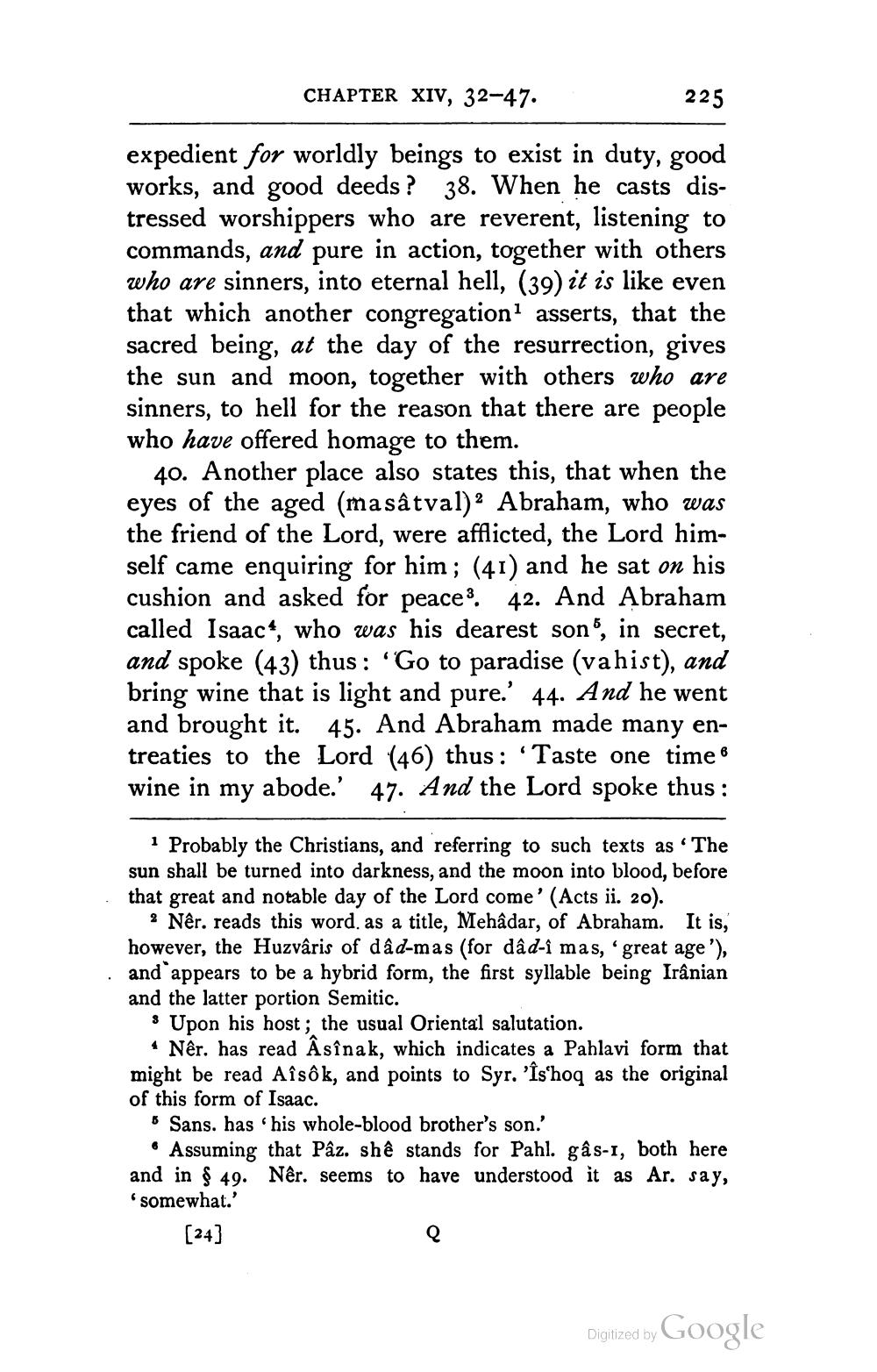________________
CHAPTER XIV, 32-47.
225
expedient for worldly beings to exist in duty, good works, and good deeds ? 38. When he casts distressed worshippers who are reverent, listening to commands, and pure in action, together with others who are sinners, into eternal hell, (39) it is like even that which another congregation asserts, that the sacred being, at the day of the resurrection, gives the sun and moon, together with others who are sinners, to hell for the reason that there are people who have offered homage to them.
40. Another place also states this, that when the eyes of the aged (masâtval)2 Abraham, who was the friend of the Lord, were afflicted, the Lord himself came enquiring for him ; (41) and he sat on his cushion and asked for peace. 42. And Abraham called Isaac“, who was his dearest son", in secret, and spoke (43) thus: 'Go to paradise (vahist), and bring wine that is light and pure.' 44. And he went and brought it. 45. And Abraham made many entreaties to the Lord (46) thus : 'Taste one time 6 wine in my abode.' 47. And the Lord spoke thus :
1 Probably the Christians, and referring to such texts as 'The sun shall be turned into darkness, and the moon into blood, before that great and notable day of the Lord come' (Acts ii. 20).
? Nêr. reads this word, as a title, Mehâdar, of Abraham. It is, however, the Huzvâris of dâd-mas (for dâd-i mas, great age'), and appears to be a hybrid form, the first syllable being Irânian and the latter portion Semitic.
& Upon his host; the usual Oriental salutation.
4 Nêr. has read Asînak, which indicates a Pahlavi form that might be read Aîsôk, and points to Syr. 'Is'hoq as the original of this form of Isaac.
Sans, has his whole-blood brother's son.' • Assuming that Pâz. she stands for Pahl. gâs-, both here and in $49. Nêr. seems to have understood it as Ar. say, 'somewhat.'
[24]
Digitized by Google




